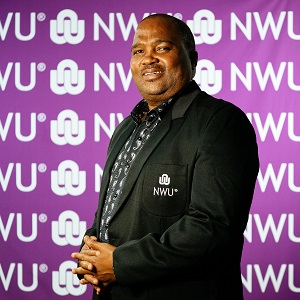The nuclear debate has raged for more than three quarters of a century. Proponents of nuclear power continue to extol its virtues, while its detractors remain steadfast in their belief that its risks outweigh its benefits. Renowned nuclear energy expert and vice-chancellor of the North-West University (NWU), Dr Bismark Tyobeka, was recently nominated to serve as South Africa’s representative on the Senior Industry Advisory Panel (SIAP) of the Generation IV International Forum (GIF).
Dr Tyobeka gives his thoughts on what the future holds for nuclear energy.
• Do you believe nuclear energy is the way forward and a viable replacement for fossil fuels in generating power?
“Nuclear and coal power plants are currently the main generating sources that provide what is called baseload electricity, in other words, units that can generate electricity around the clock, uninterruptedly. That is not the case with other sources such as wind, solar and hydro. I believe we need a balanced energy mix that would include everything. However, in view of South Africa’s international obligations towards efforts to mitigate climate change, we will unfortunately and in due course have to phase out coal as we know it, and hopefully introduce clean coal technologies to reduce emissions.
“That is why nowadays, the issue of ‘just energy transition’ is highly topical in developing countries. What it means is that there needs to be a gradual and phased approach to transitioning away from coal, while ensuring that such a phase out does not adversely affect the social and economic well-being of developing countries, especially considering that we still have an abundance of coal reserves in South Africa. If we are to wake up tomorrow and say no coal, imagine how the economy of provinces such as Mpumalanga and Limpopo would be ravaged.
“Just recently, in February 2022, the European Commission – the executive arm of the EU – decided to give nuclear energy and natural gas a green label under its taxonomy. Europe’s taxonomy is its classification system for defining ‘environmentally sustainable economic activities’ for investors, policymakers, and companies. This official opinion of the EU matters because it affects funding for projects as the region charts its path to address climate change. Therefore, there seems to be a bright future for new nuclear as far as the funding of new projects goes, at least in the EU region.”
• How do you envision the nuclear future of South Africa and the world?
“The future for nuclear looks good but will require innovative funding approaches, as governments cannot be left alone to carry the risks associated with nuclear power projects. It would bankrupt governments if we do not allow other players to come in and invest in nuclear projects in the form of public-private partnerships. In South Africa, especially with the enormous energy security issues we have faced over recent months, it cannot be argued that nuclear cannot – in the medium to long term – provide a long-lasting solution to our electricity needs.
“Considering that the new plants can operate for up to 80 years, it means that a careful investment in a balanced energy mix, with nuclear firmly part of it, can resolve the energy issues for future generations and boost economic growth. But there are prerequisites to all these, such as establishing a sound framework for public-private partnerships to finance the projects, a strong nuclear regulatory framework, which we fortunately already have, more investment in skills development for both the operation and maintenance of nuclear power plants, and a strong local participation of industries for localisation purposes. We must also have transparent and cost-effective procurement processes in place for a public buy-in.”

Dr Bismark Tyobeka
